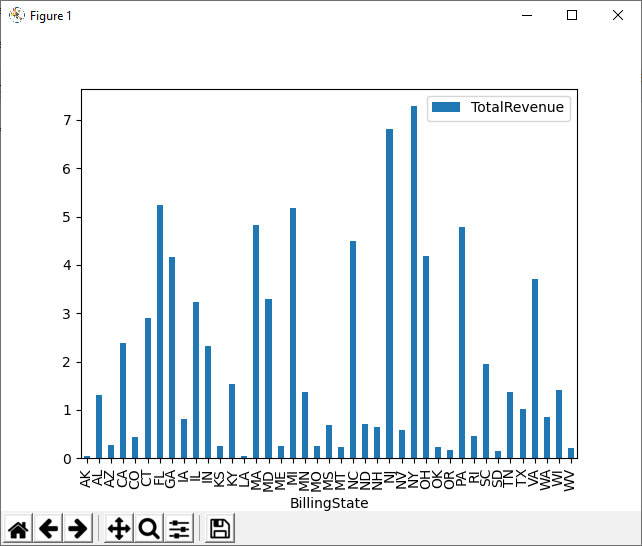Discover how a bimodal integration strategy can address the major data management challenges facing your organization today.
Get the Report →How to Visualize HubSpot Data in Python with pandas
Use pandas and other modules to analyze and visualize live HubSpot data in Python.
The rich ecosystem of Python modules lets you get to work quickly and integrate your systems more effectively. With the CData Python Connector for HubSpot, the pandas & Matplotlib modules, and the SQLAlchemy toolkit, you can build HubSpot-connected Python applications and scripts for visualizing HubSpot data. This article shows how to use the pandas, SQLAlchemy, and Matplotlib built-in functions to connect to HubSpot data, execute queries, and visualize the results.
With built-in optimized data processing, the CData Python Connector offers unmatched performance for interacting with live HubSpot data in Python. When you issue complex SQL queries from HubSpot, the driver pushes supported SQL operations, like filters and aggregations, directly to HubSpot and utilizes the embedded SQL engine to process unsupported operations client-side (often SQL functions and JOIN operations).
About HubSpot Data Integration
CData provides the easiest way to access and integrate live data from HubSpot. Customers use CData connectivity to:
- Access HubSpot without worrying about API updates or changes..
- Access custom objects and fields in HubSpot with no extra configuration steps involved.
- Use SQL stored procedures to perform functional operations like uploading or downloading attachments, inserting engagements, and creating or deleting custom objects or fields.
Users frequently integrate HubSpot with analytics tools such as Tableau, Power BI, and Excel, and leverage our tools to replicate Workday data to databases or data warehouses.
To learn about how other customers are using CData's HubSpot solutions, check out our blog: Drivers in Focus: Simplified HubSpot Connectivity.
Getting Started
Connecting to HubSpot Data
Connecting to HubSpot data looks just like connecting to any relational data source. Create a connection string using the required connection properties. For this article, you will pass the connection string as a parameter to the create_engine function.
HubSpot uses the OAuth authentication standard. You can use the embedded OAuthClientId, OAuthClientSecret, and CallbackURL or you can obtain your own by registering an app.
See the Getting Started chapter of the help documentation for a guide to using OAuth.
Follow the procedure below to install the required modules and start accessing HubSpot through Python objects.
Install Required Modules
Use the pip utility to install the pandas & Matplotlib modules and the SQLAlchemy toolkit:
pip install pandas pip install matplotlib pip install sqlalchemy
Be sure to import the module with the following:
import pandas import matplotlib.pyplot as plt from sqlalchemy import create_engine
Visualize HubSpot Data in Python
You can now connect with a connection string. Use the create_engine function to create an Engine for working with HubSpot data.
engine = create_engine("hubspot:///?InitiateOAuth=GETANDREFRESH&OAuthSettingsLocation=/PATH/TO/OAuthSettings.txt")
Execute SQL to HubSpot
Use the read_sql function from pandas to execute any SQL statement and store the resultset in a DataFrame.
df = pandas.read_sql("SELECT Slug, PageViews FROM Prospects WHERE Region = 'ONTARIO'", engine)
Visualize HubSpot Data
With the query results stored in a DataFrame, use the plot function to build a chart to display the HubSpot data. The show method displays the chart in a new window.
df.plot(kind="bar", x="Slug", y="PageViews") plt.show()

Free Trial & More Information
Download a free, 30-day trial of the CData Python Connector for HubSpot to start building Python apps and scripts with connectivity to HubSpot data. Reach out to our Support Team if you have any questions.
Full Source Code
import pandas
import matplotlib.pyplot as plt
from sqlalchemy import create_engin
engine = create_engine("hubspot:///?InitiateOAuth=GETANDREFRESH&OAuthSettingsLocation=/PATH/TO/OAuthSettings.txt")
df = pandas.read_sql("SELECT Slug, PageViews FROM Prospects WHERE Region = 'ONTARIO'", engine)
df.plot(kind="bar", x="Slug", y="PageViews")
plt.show()





